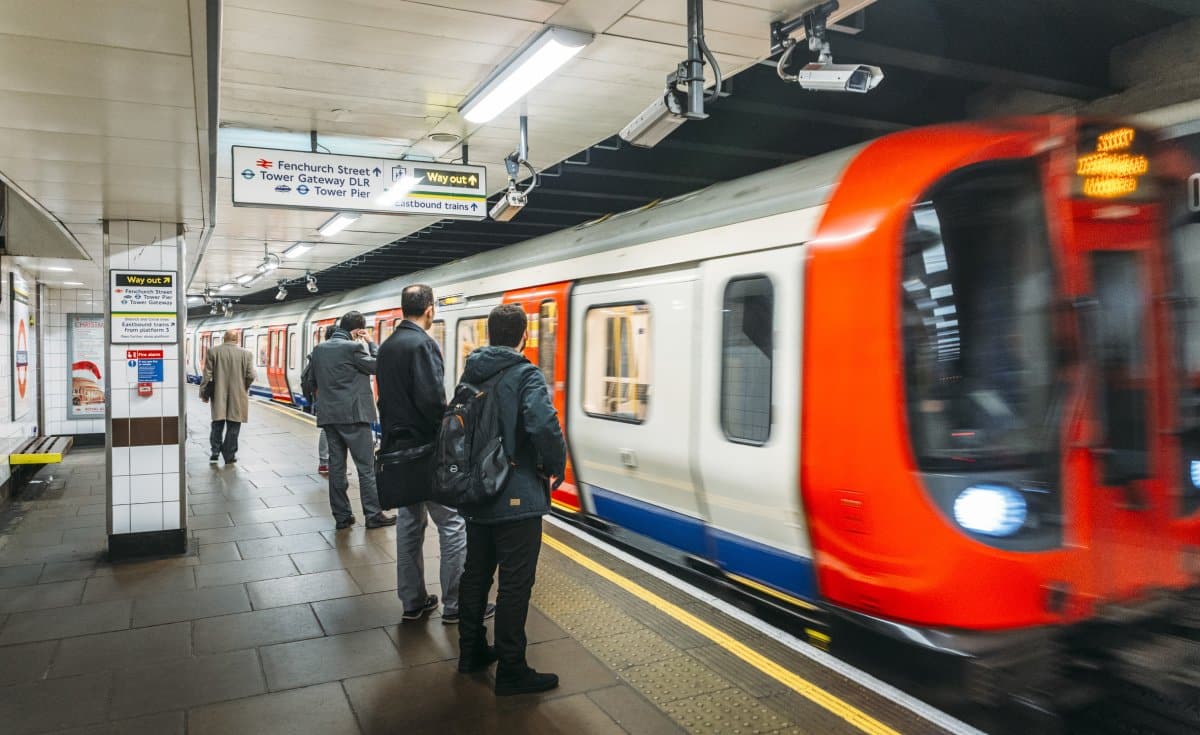A groundbreaking analysis has revealed the stark carbon emission divide between electric cars and trains, igniting a debate on sustainable travel choices and corporate responsibility in the face of the impending climate catastrophe. Here’s the full story.
Climate Catastrophe
As the public has become ever more conscious of the impending climate catastrophe, the debate over the most environmentally sustainable method of travel has begun to heat up.
An analysis by the Rail Delivery Group (RDG) has shown that electric cars produce twice as much CO2 as trains on Britain’s busiest business routes.
In the age of climate consciousness, the choice between electric cars and trains has become more than just a matter of convenience. It has become a statement of environmental stewardship.
Can’t Argue With Maths
The RDG’s analysis leaves no room for ambiguity: when it comes to carbon emissions, trains reign supreme. On average, traversing Britain’s top 100 business routes via train generates less than half the CO₂ emissions of a battery electric car.
The contrast is staggering, with certain train journeys boasting emissions as low as one-fifteenth of their electric car counterparts. What sets this analysis apart is its unprecedented level of detail. By factoring in variables such as train types and occupancy rates, the RDG has provided businesses with a powerful tool to make informed, sustainable travel choices.
Reshaping the Future
This isn’t just about reducing carbon footprints; it’s about reshaping the future of transportation. Yet, amid the celebration of trains as the eco-friendly option, a sobering reality has emerged: the cost of rail travel remains an insurmountable barrier for many.
Despite its environmental merits, fares on some of the greenest rail routes fail to undercut the price of driving. This pricing out of the most eco-friendly option raises critical questions about the accessibility and affordability of sustainable transportation options in a world grappling with climate change.
Numbers Don’t Lie
For those seeking empirical evidence of the environmental benefits of train travel, look no further than the numbers.
Consider a journey from Edinburgh to London Kings Cross: while a diesel car emits 116kg of CO₂, a battery car produces 31.8kg, and a train ride results in a mere 12.7kg per person.
These figures underscore the undeniable role of trains in curbing carbon emissions, particularly in long-distance travel scenarios. However, all is not as simple as it seems, as for those opting for single fares on the primary operator for that route, LNER, the cost has surged to £183 without prior booking.
Fuel Expenses
Comparatively, the average fuel expenses amount to approximately £50 for a small petrol car travelling the 400 miles, with even lower costs for electric cars, despite recent spikes in energy prices.
The issue then is not with the environmental effects of train travel, which are markedly better according to RDG’s analysis, but with the price of train travel.
Whilst booking in advance can reduce the cost of train travel in the UK, for rail travel to become a genuine alternative to cars, either regular fossil fuel or electric models, the price of all train travel must come down.
It’s not merely about making train travel greener, as it is already very environmentally friendly, it’s about ensuring that train journeys are affordable for all who seek to embark on a more sustainable journey.
Considerable Influence
In the realm of sustainable travel, businesses wield considerable influence. By championing policies that prioritise rail travel and incentivize eco-friendly choices, corporations can propel the shift towards a greener future.
From reducing carbon footprints to fostering a culture of environmental responsibility, the benefits of embracing sustainable transportation are many and varied.
The RDG’s analysis serves as a call to action, emphasising the need to embrace trains as the linchpin of sustainable transportation.
Climate Reality
As the realities of climate change start to bite, it is imperative that journeys can be undertaken in a greener and more sustainable way.
As the data shows, the technology is not the problem, the price is. However, whether this new information will lead to any change to make green travel easier remains to be seen.
More Articles Like This…
Broken Britain: 12 Reasons Behind the UK’s Decline
Say the Unsayable: 10 Occasions When Farage Spoke His Mind About Britain
The post The Cost Con: New Report Shows Trains Use Much Less CO2 Than Electric Cars first appeared on Edge Media.
Featured Image Credit: Shutterstock / Alexandre Rotenberg.
Grant Gallacher is a seasoned writer with expertise in politics and impactful daily news. His work, deeply rooted in addressing issues that resonate with a wide audience, showcases an unwavering commitment to bringing forth the stories that matter. He is also known for satirical writing and stand up comedy.

